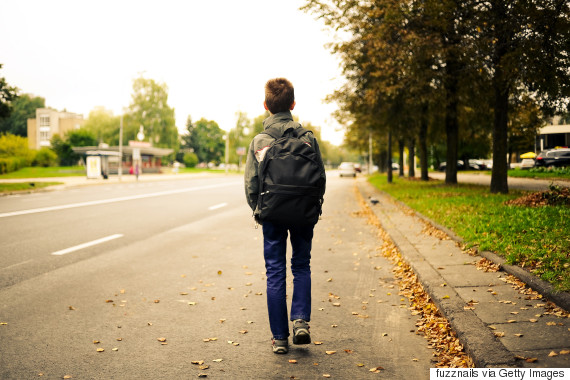As parents, one of our greatest fear is not being able to protect our children. However, this fear has led to us to being overprotective. Gone are the days of using public transport or walking to school, supermarket, your friend’s house. Today, most of our children are driven everywhere for fear of getting lost, mugged or kidnapped. The downside to our “over protection” is we are training children who are “ajebutter”. Children who increasingly when left on their own might not be able to protect themselves and make wise decisions depending on what situation they find themselves.
Sheltering kids too much puts them in an unrealistic bubble and doesn’t prepare them to deal with various different situations when they occur. Studies support the fact that street smart kids are far less likely to be abducted than sheltered kids. This means it is in our best interest as parents to raise street smart kids who can keep themselves safe from strangers, identify safe places in the neighborhood, and navigate their way around tough places and situations.
This few tips can help you better equip them
- Armed them with critical information
Does your child know your real name? Do they know your mobile numbers as well as their house address? As early as possible let your children know their name and surname as well as their parents’ names, mobile numbers and home address.
- Teach them how to get help
During childhood, the possibility that your child will get lost or need help is 100%. She can get lost in the mall, at the airport, on the way home, etc. What if there is a fire, or an emergency does your child know what to do? Showing your kids how to get help will give you peace of mind and will prepare them if ever they are hurt or in danger. Teach your children to look for other helpful people when they cannot find you or become lost. This may be a teacher, police officer, or a mom or dad with children.
- Let them know the difference between Good Stranger and Bad Stranger
Define who strangers are without making them feel afraid. It’s important for children to understand not all strangers are bad strangers, instead teach them about warning signs, unsafe situations and bad people. Explain to them that strangers who tempt children with treats and rewards, who lure them to their cars with empty promises or who touch your child’s body when you say ‘no’ are bad people. And lastly, normal adult doesn’t need to ask children for help or directions.
- Train them to be observant
One of the greatest lessons my parent taught me about being street smart was being observant. Do you sense someone following you? When you enter public transport, are you the only female or are the other people looking funny? The stranger walking up to you, is he behaving odd? Has the same car/person be following you, turning when you? I hear all my Mother words ringing in my ears till today. Practice teaching your kids how to be observant and aware of their surroundings even when they’re with friends, they should still be cautious. They should be able to recognise people’s features, car models, landmarks, tell-tale signs, etc.
- Expose them to diverse people and places
Take your kids out into various communities to volunteer and interact with other people outside of their neighbourhood. Plan an outing that involves taking public transportation with your kids to get them familiar with that setting in case they have to use it one day. Resist the temptation to drive them everywhere, sometimes a stroll to a near by helps them get street smart about car and street safety.
- The Dos and Don’ts List
It is still important to have a list of dos and don’ts for your children. Here are some examples for your list –
- Don’t get in the car with anyone they don’t know even if it’s a friend’s friend.
- Don’t allow anyone touch your private parts
- Do stay in one place and yell my name at the top of your voice if you get lost in the supermarket
- Do let me know where you are going and your whereabouts all times
- The power of NO
Teach your kids how to say ‘no’ confidently to anyone acting inappropriately regardless of their position of power. Teach them that they have the right to say No and do not have to do anything they do not feel comfortable doing. Teach them that it is ok to speak up and be assertive if they are uncomfortable. Just because the person telling you to do something is an adult, especially the adult that is in charge at that time, it does not mean he/she has to be blindly obedient.
- Trust their gut
You won’t always be there to keep them safe, they will need to do it on their own. Talk to your children about their “gut” feeling – “an uncomfortable feeling in their tummy that tells them something might be wrong” It is how they are feeling about a person, place, or situation that they can’t quite explain. They need to learn to trust their gut feeling. It helps warn them about danger and help protect them from it.
At 9ijakids, we have a fun game to test your child’s knowledge about safety rules. Let them play our Safety 101 game to learn more about road, fire and online safety. Also, our Protecting Your Body game is another fun game to teach them about their bodies and how to recognise “bad touch”.
9ijakids – making learning fun through games.


